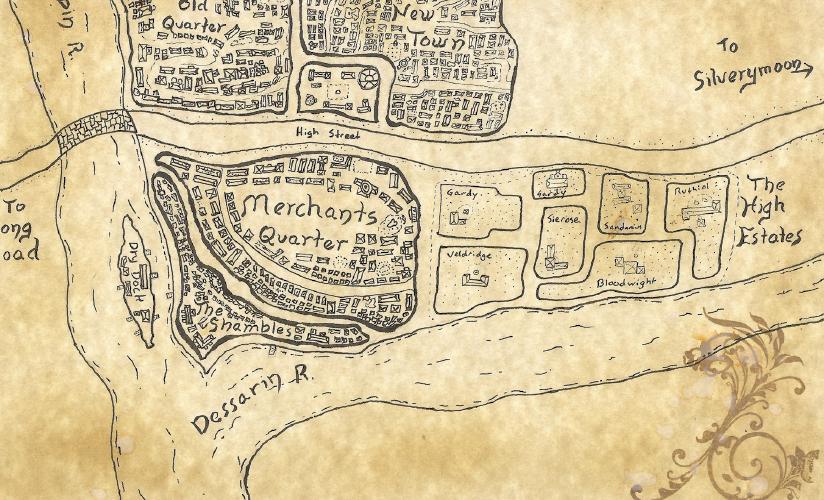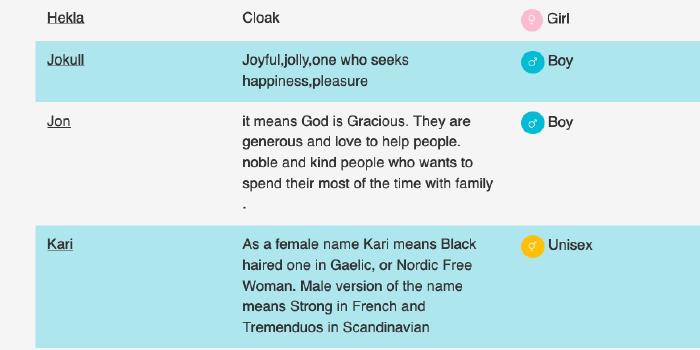The Pros and Cons of Running a Homebrew DnD Adventure

The other day I heard a DM explaining that he did not like to run D&D homebrew adventures. This DM’s revelation threw me for a loop. He had decades of experience. And I (a comparatively new DM) have done almost exclusively homebrew campaigns. Was I doing something wrong? Was I overly ambitious or actually ruining my players' experience? I’ve spent a few weeks thinking about it and have reached the conclusion that homebrew is definitely not the right route for all DMs. But for others, it may be what makes DMing enjoyable. This post weighs some of the pros and cons of running homebrew. Spoiler: It boils down to creative energy, personality, and time.
What is “Homebrew”?
In the D&D (or TTRPG) world, an adventure is “homebrew” if the DM creates the main storyline on their own. Usually, this is contrasted with running published adventures or campaigns. Homebrew adventures need not be completely created from scratch. Many homebrew campaigns incorporate existing settings, encounters, maps, characters and so on. Sometimes a homebrew campaign may even pull in some published adventures.
A campaign covers the entire time that the players' characters are adventuring. An adventure follows a specific plot line start to finish. A campaign may be just one adventure. Or it may be a series of adventures (sorta like Lord of the Rings or Harry Potter). Or each session of a campaign may be a stand-alone adventure. So a homebrew campaign can be made up of a variety of adventures, some your own and others published.
A Quick Story About What Homebrew Is Not
I once played an adventure in which one of the other players was also a DM. He had a frustrating habit of rules-lawyering and calling out our DM when he felt our DM was not following “canon lore.” But worse than that, he would chide our DM about scenes, encounters, or plot elements. “Oh, you stole this character from Dungeon of the Mad Mage!” or “This encounter is from Strahd, isn’t it?” It was horrible! The rest of us were enjoying the experience, then would be forced to pause while the player and the DM meta-gamed about the source material.
This experience happened a few years ago. But what irks me even now is that the player was wrong to criticize. Even if the DM was borrowing liberally from other sources, that is perfectly fine to do! He had put together a fun adventure, and we (his players) were genuinely enjoying it.
So here is an important clarification about a non-requirement of creating homebrew adventures: It is not a requirement of homebrew that it must be entirely original.
Following common patterns like “Hero’s Journey” or “Three Act Mystery” is a big boon. Your players will have a sense of purpose and progress, while you have a ready template for writing. If this seems generic to you, consider it this way: The vast majority of novels and movies you watch follow the same patterns and plot lines. Yet you still enjoy them. This is how your players will feel when you use existing structures.
Feel free to go a step further. Re-purpose scenes, plots, and characters from books, shows, and movies you enjoy. In interviews here and there, I have heard “big name” writers and DMs say that a particular adversary or encounter was inspired by a favorite fictional work of theirs. And if they do it, then you should certainly feel free to do the same. You probably don’t want to use these elements exactly as they are, but with some strategic changes and renames, you can evoke in your players that same sense of awe that you experienced watching or reading the scenes that inspired you.
What It Takes To Write a Homebrew Campaign
I don’t want to set the homebrew bar dauntingly high, but there are a few things you should do that will get you on track for creating a campaign enjoyable for both you and your players. These things will help you weave together an environment, a plot arc, and the mechanics of the game in order to create a cohesive campaign.
The campaign should:
- Fit into a setting (possibly one you make, or possibly one like Eberron or Forgotten Realms)
- Tell a story, or at least propel your players forward.
- Some players enjoy episodic campaigns where each adventure is its own self-contained unit
- Many players want a narrative that ties the entire campaign together
- I am told that somewhere out there are players who don’t care about story and just want to fight. I have never met these people. Still, you have to propel these players forward from encounter to encounter.
- Find a balance of storytelling, role playing, and combat.
- There are some parties that strongly prefer one to the others, so if you know your players, you can balance to their tastes
- Most parties like a pretty even balance.
- Keep the story consistent and relatively straightforward. It gets very un-fun very fast if things don’t make any sense.
- While some mystery is good, most parties do not want to try to untangle hugely complicated political, social, or religious relationships
- Most parties also have a low tolerance for capricious and bizarre adventures where they can’t make sense of what they are supposed to do. A moment of unfamiliarity is fun. But a little goes a long way.
Here’s an example of an adventure that failed to satisfy enough of the above items. It was placed a setting that was a nonsensical “Alice in Wonderland”-like world where characters inexplicably took levels of exhaustion and sudden changes of weather dealt damage to characters who weren’t dressed right. The arch-villain turned out to be one of our party (who was surprised to find he was the big bad evil guy). We ended up having to kill him, which felt very wrong. While a dubiously good arch-fey resurrected our fallen comrade-turned-foe-turned-comrade-again, we were all left feeling uneasy. To top it all off, the arch-fey took all our treasures and magic items, leaving us with nothing to show for the adventure.
The setting was weird, the story was confusing, and the entire adventure lacked consistency. As a result, the players were left unsure what to do and the DM had to railroad us through the game. The conclusion left us upset (and gave one player some serious trust issues after we so brazenly killed their character).
Too few of the requirements were met. The DM could have fudged one or two of them, but by ignoring most of them, he created an adventure whose frustrations outweighed its enjoyability.
Following a list of prerequisites might feel formulaic. But that is actually good. It gives the players the groundwork they need in order to make the adventure their own. If you really know your players, you may be able to diverge from some of the guidelines. But if you depart too much, you are likely to frustrate or bore your players.
Now you know what you’re signing up for. Let’s look at the benefits and disadvantages of taking this journey.
The Pros and Cons
Is creating a homebrew adventure or campaign worth the effort? That depends on how you feel about the pros and cons. Some will think the tradeoff worthwhile. Others will not. As one experienced DM friend put it: If starting with an existing adventure frees you up to be a better DM, then that’s what you should do. After all, a DM’s number one goal should be to create an enjoyable experience for the players.
The Pros
Here are some reasons why building a homebrew campaign can be rewarding for both you and your players.
- You get the freedom to tell your own story
- You can go for the feel that you want (dark and gritty, heroic and action packed, mysterious and romantic…)
- Your players get a chance to participate in the story, and alter it as it goes
- You and the players can be a lot more flexible about which setting, classes, races, items, and so on are part of the game
- You can create colorful NPCs and vicious monsters that fulfill your own vision
- You can exercise your creative skills with map-making, lore-writing, and puzzle-building
- You can try out new mechanics (like a new vehicle type or a post-horse system for travel)
- If things go wrong or the adventure starts to stagnate, you can change it
A few DMs have mentioned–and I agree–that both the DM and the players gain a little more of an emotional attachment to a homebrew campaign because they feel like they have more invested. And that can be a great thing. It can amplify the exhilaration of defeating a major foe, or the sadness of losing a friendly NPC, or even the humor of having a local minstrel start composing songs about the party’s adventures.
The Cons
Published adventures have been play tested (sometimes extensively). That is a huge perk. These adventures have gone through multiple drafts, and many changes have been made in the name of playability. If you are running a homebrew campaign, your players are the play test.
- You have to think through a lot of scenarios carefully to prevent holes or flaws that your players can exploit in a game-ruining way
- You need to be okay with the story not going the way you expected
- Chances are good that you will have to rewrite some of the adventure as you go
- The plot might not work out
- Encounters may need adjustments to challenge ratings and creatures
- Your players might do things you hadn’t predicted, like killing the NPC who was supposed to give them critical information. You will need to adjust
- Finally, know that running a homebrew campaign is four to five times the work as running a published adventure
Is It Right For You?
At the end of the day, the main question to ask yourself is whether a homebrew campaign is right for you, and for your style of DMing. As I learned when listening to other DMs, choosing whether or not to homebrew isn’t a matter of “leveling up” your DMing. Homebrew doesn’t make you a better DM. Instead, it’s a matter of deciding what is important to you. And that means deciding what is most enjoyable for you and for your players.
In the end, it’s about creativity, flexibility, and time. If you have a story to tell, are willing to be flexible, and have plenty of time, then you may really enjoy building a homebrew adventure or campaign.
You really need all three of those, though. If you are short on time, want things worked out in advance, or just don’t feel like you’ve got a story to tell right now, then you probably will enjoy DMing more if you start with an existing adventure.
Finally, it is not a firm either/or. You may get started with a published adventure, and then find the inspiration to make it your own. When that happens, it’s an awesome opportunity. Or you may kick off a homebrew only to discover modular adventures (like the ones in Icewind Dale) to plug in and make your preparation easier. For me, what makes DMing fun is the leeway to “make it your own.” Sometimes you make it your own in small ways, like tweaking an item or a creature. And sometimes, everything aligns, and that great homebrew idea blossoms into an adventure or even an entire campaign.


